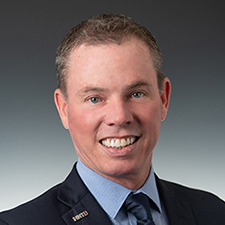Best practices in priced-managed lanes can improve mobility for everyone
Building a better ride through choice and reliability
As large metropolitan areas consider the most effective ways to manage urban traffic congestion, priced-managed lanes are a viable solution, delivering value to transportation owners and choice to commuters. PMLs, sometimes called express lanes, work by tolling some lanes in an urban corridor, and are most impactful when there is acute, recurring, peak-period congestion. In many cases, they have proven to be a highly effective approach to increasing throughput, capacity and reliability.
Regulating congestion by fluctuating the fee to use the PMLs based on the real-time demand along the corridor can ultimately bring benefits to all traveling along the corridor. PMLs have proven to be “game-changers” in California, Florida, Georgia, Minnesota, Texas, Virginia and Washington. For example, when the Georgia Department of Transportation added priced-managed lanes to the I-75 corridor, speeds in the general-purpose lanes increased by 20 mph, providing a better travel experience – even for those who do not use the tolled express facility.
Because many states do not currently have legislative authority to implement priced-managed lanes, understanding it can take considerable time to propose and approve enabling legislation for PML projects, fast-growing metropolitan areas should consider acting now.
Following are some of the best practices public agencies are using to develop these mobility-enhancing facilities:
Identifying the right corridor
PMLs are most effective when travel time reliability along a corridor is frequently inadequate and available alternative routes are ineffective. Other considerations that may signal the need for priced-managed lanes include:
- A forecasted surge in the development for the area
- A need for major reconstruction of the corridor
Determining scope
Successful priced-managed lane projects tend to target the most congested corridors because they generate the greatest value and improvement in mobility. However, given available resources, some owners may be more comfortable implementing a pilot project to produce an early win and proof of concept. For them, a smaller-scale pilot project might align better with their goals. Either approach can result in a successful facility when planned and executed effectively.
Studying feasibility
Knowing the estimated capital, operating and maintenance costs and the corridor’s revenue-producing potential can help owners understand the feasibility of a proposed priced-managed lanes project. Feasibility studies help owners understand the corridor’s potential to produce enough revenue to offset operating and maintenance expenses and even subsidize a portion of the upfront capital costs.
Incorporating transit
PMLs are a major investment. To help cover costs, some owners may be interested in attracting federal grants or low-interest loans. To increase their application’s competitiveness, some owners incorporate transit into their operating models. Georgia’s SR 400 Express Lanes project in northern Atlanta received a federal grant, which allows registered transit vehicles to access the facility for free.
Beyond funding, giving transit vehicles free access to PML corridors is a value-add. Providing a quasi-fixed guideway for express buses creates little capacity erosion and can result in increased reliability for transit riders. In one instance, allowing buses to use priced-managed lanes led to the provider changing its published schedule for certain routes because buses were arriving at their destinations much earlier.
Increasing equity
When planned and implemented effectively, PMLs benefit motorists in the general-purpose lanes, transit riders and those willing to pay for a reliable travel time. The cumulative result is a more effective, inclusive transportation system.
Further, statistics continue to show PMLs are utilized by a wide spectrum of commuters when a reliable trip time is their No. 1 priority. Reasons range from picking up children at day care to catching a flight, but all are based on the value users place on their time.
To ensure greater transportation equity, some owners have implemented innovative relief programs. The Virginia Department of Transportation offers meaningful toll relief for qualified residents who use the Elizabeth River Tunnels. Georgia’s State Road & Tollway Authority allows residents who use transit to earn toll credits for days when they need to drive automobiles.
When implemented successfully, relief programs can deepen community and political support for PMLs and promote goodwill.
Offering choice
Considering their continued success, proven PML solutions are an option as regional authorities and metropolitan planning organizations seek ways to improve traveler experience and reduce congestion in their busiest corridors. Through added convenience and reliability, owners have the opportunity to give everyone a better ride.
ABOUT THE AUTHOR
 Kevin Hoeflich, PE
Kevin Hoeflich, PE
Toll Services Chair
HNTB Corporation
Kevin Hoeflich, PE, is chair of toll services and senior vice president. His primary focus is toll client service, strategic planning, recruiting and growing the firm’s overall toll practice. He counsels HNTB clients nationwide, including the Miami-Dade Expressway Authority, the North Carolina Turnpike Authority, Central Florida Expressway Authority and the Richmond Metropolitan Transportation Authority.
Contact him at (321) 436-6966 or [email protected].

Tom Hutchinson, AICP
Managed Lanes Practice Consultant
HNTB Corporation
Tom Hutchinson, AICP, is a managed lanes practice consultant and vice president. He previously led HNTB’s Georgia tolls practice, supporting the Georgia Department of Transportation and the State Road and Tollway Authority as they worked together to deliver several PML projects. He also has advised clients around the country as they plan for, deliver and operate toll projects and managed lane systems.
Contact him at (404) 852-2439 or [email protected].
SEE MORE ARTICLES
